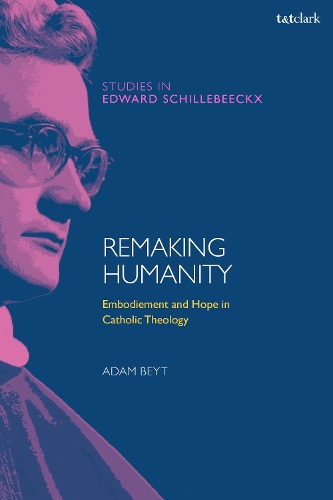
Remaking Humanity: Embodiement and Hope in Catholic Theology
(Hardback)
Available Formats
Publishing Details
Remaking Humanity: Embodiement and Hope in Catholic Theology
By (Author) Dr Adam Beyt
Bloomsbury Publishing PLC
T.& T.Clark Ltd
19th September 2024
United Kingdom
Classifications
Tertiary Education
Non Fiction
Roman Catholicism, Roman Catholic Church
Religious aspects of sexuality, gender and relationships
Religion: Eschatology
Philosophy: epistemology and theory of knowledge
233
Physical Properties
Hardback
256
Width 236mm, Height 164mm, Spine 20mm
520g
Description
Drawing upon Edward Schillebeeckxs theology and Judith Butlers philosophy, Adam Beyt uses the framework of nonviolent hope to construct a theological anthropology for ethics. Theological anthropology grounds moral reflection on discipleship. In its framing of embodied difference, such theology can participate in dehumanizing violence. Dehumanizing violence indicates words, institutions, or act causing harm that denies the full human dignity stemming from being made in the image and likeness of God. Theological anthropology can participate in dehumanizing violence by claiming an uninterrogated universality that marginalizes bodies due to their perceived differences such as gender, race, sexuality, or ability. The books constructive political theology integrates Schillebeeckxs and Butlers thought with queer theory and phenomenology to model embodiment as an enfleshing dynamism between bodies and signification. The text then posits Catholic discipleship as incarnating the hope of the Reign of God. Combining reflections from Schillebeeckx and Butler, this hope centers discipleship as nonviolent world building. Concluding with a sustained reflection with the writings of Franz Fanon and Walter Benjamin, the final chapter sketches a Catholic solidaristic response to contemporary struggles against colonizing and state violence.
Author Bio
Adam Beyt is Visiting Assistant Professor of Theology and Religious Studies at Saint Norbert College, USA.
